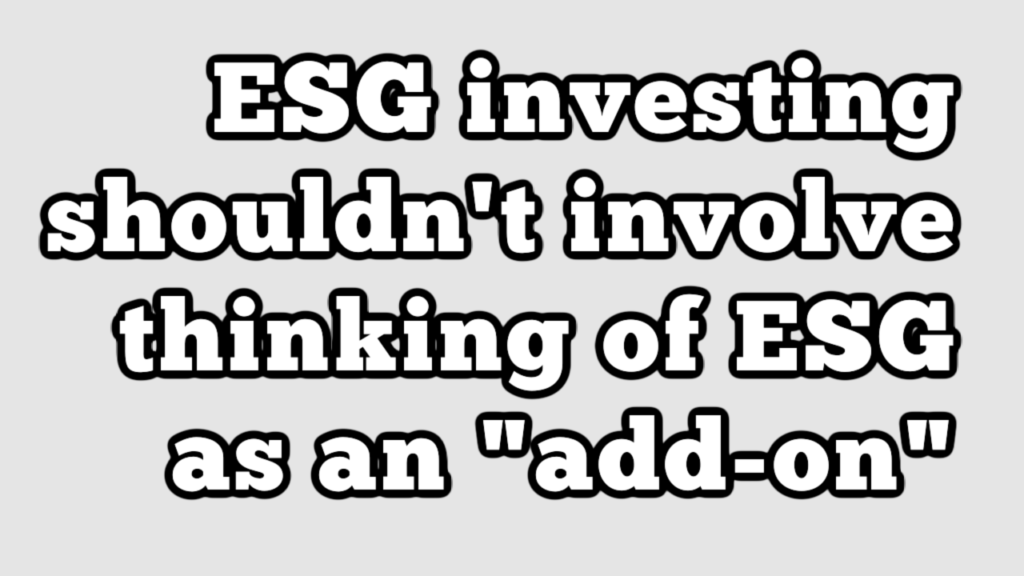ESG investing shouldn’t involve thinking of ESG as an “add-on”

Here’s a note from Nawar Alsaadi:
Let me share with you my vision of what ESG investing is or should be. ESG investing is not conventional investing that happens to have ESG factors embedded in it. To me, the future of ESG investing is managing for ESG factors profitably. In this sense, ESG investing approaches in its essence impact investing with the difference that the former is not focused on additionality as a prerequisite, but rather focused on doing no harm as the bedrock of capital deployment.
When the starting point for a business is managing its externalities, the resulting outcome is radically different. In this context designing with circularity in mind becomes a foundational approach to product development. Good pay and equitable working conditions become a baseline and not a perk. Using emissions free energy would be the only choice and not an option. Enhancing customer’s lives moves from a marketing slogan to a core business mission. Turning a blind eye to dictatorial regimes ceases being a business development pathway.
Achieving the above is possible if the actual and real cost of business externalities are fully reflected in the valuation of public and private companies. The good news is that much of the data required to make this determination is available. ESG data providers have a critical role to play in capturing, packaging, and distributing this data. The second critical piece is identifying financial markets participants that have the courage and foresight to invest in companies where ESG factors are a leading criterion. The companies surfaced and held by a fund of this nature will materially differ from the companies dominating the traditional indices. And here I am not talking about pseudo-ESG leaders (Phillip Morris, Big Tech, Tesla … etc.) but actual externalities’ positive leaders across the spectrum.
For those familiar with Moneyball, think of the resulting stock basket as the Oakland As in 2002. Using a novel approach to building a baseball team, Billy Beane assembled what can only be described as a team of misfits, rejects, and laggards based on an outdated take on the game. And yet, and despite the extreme skepticism of the old school baseball clique, the Oakland As defied all odds and went to the playoffs in 2002 and 2003 on a skeleton budget. And then went out to redefine the game of baseball all together.
Funds who still think ESG is an ‘add-on’ are missing the point. A new game is emerging and with it a new set of rules as to what constitutes durable wealth creation. Those who manage to grasp this reality will be the ones making it to the play offs in the years and decades to come.
